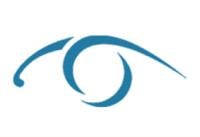Heather Hill, a general special education teacher at Lynchburg’s T.C. Miller Elementary School for Innovation, went to Walmart to shop for Valentine’s Day treats for her students last week.
Instead of the school paying for these items, Hill paid for them using her own money, which is a common practice among teachers across the country.
Every year, teachers find themselves shopping for new decorations, resources and supplies for their classes, but many pay for these items out of their own pockets.
On average, teachers spent $530 of their own money on items for their school, classroom or students in 2016, according to a survey from Scholastic, an educational publishing and media company.
Page Miller, a first-grade teacher at Amelon Elementary School in Amherst County, said she spends as much as $1,000 annually on resources for her classroom.
“If I need a game for a certain station or a certain thing we’re going to do at school, I buy it. Sometimes [I buy] plain materials like notebooks, paper, glue sticks, just regular things that I’ll stop by the store and buy. [The school] only gives you so much money, and the money they give me goes toward construction paper, handwriting paper, those kinds of things,” Miller said.
Out of the 3,694 teachers nationwide Scholastic surveyed in 2016, 55 percent of them said they received discretionary money or an allotment for reimbursements from their school, district or PTA for classroom materials or other needs for their students. Parent Teacher Organizations also provide some financial assistance for teachers, according to local teachers.
“Our PTO is very good about trying to give every teacher a little bit of money to help with classroom expenses,” saidLori Smith, a third-grade teacher at Lynchburg’s R.S. Payne Elementary School.
Audrey Moore, a Life Skills teacher at Lynchburg’s Sandusky Middle School, said her school provides teachers $100 per year, but “that goes pretty quick.”
“I wouldn’t know the exact number [I spend]. Any fun activity or storage bin comes out of a teacher’s pocket,” Moore said.
Many teachers lose track of the amount they spend because they’ll buy something for their classrooms on the spot while shopping.
Judith Nagy, a kindergarten teacher at Leesville Road Elementary School in Campbell County, said she spends between $300 and $400 annually on “anything from treasure box treats to supplies needed for special projects or science experiments and sometimes providing food for different activities or rewards.”
Danny Givens, owner of Lynchburg’s Givens Books and Little Dickens, which sells educational supplies, said one-fourth of the store’s total sales are attributed to teachers and parents buying items in the store’s educational section.
“Many [teachers], depending on where they are with their career, still come in to get things to supplement their classrooms: decoratives, resource books, seasonal items, stickers and motivational charts, things like that,” Givens said.
Givens said he sells the most materials for kindergarten through eighth grade, and the store sees spikes in purchases in July and August, when the school year is starting, as well as in January and February, when the new semester begins.
“On occasion, there’s some teachers that’ll spend $200 to $300. We also have accounts with all the area schools, which is helpful because we just bill the schools. Those are usually anywhere from $50 to several hundred [dollars]. It’s convenient, and [the teachers] seem to like it because they’re not paying right out of their pocket,” Givens said.
School divisions provide funds to their schools each year through their operating budget. The schools then distribute the funding to teachers as needed. Some school divisions, such as Campbell County Public Schools and Lynchburg City Schools, provide about $400,000 and $440,000 respectively, but other divisions, such as Bedford County Public Schools, provide about $1.1 million.
“[Principal Amy Huskin has] always approved [requests] for me. It feels really good to be able to approach her. She never even thinks twice whenever asked usually. We’re all here for the same reason, and I know my principal is behind us for that, too,” said Hill.
To offset some of the costs, many teachers go to websites such as Donors Choose and Teachers Pay Teachers to request funding for different projects. Donors Choose is a website where teachers can propose a project that people can make donations to on the website. Teachers Pay Teachers is an open online marketplace where teachers can sell their original items, such as lesson plans and course materials, to other teachers.
“I write projects for everything. Whatever I need, I write a project for, and hopefully it gets funded. I have had some that have not been funded, but I guess you can’t get them all,” Miller said.
Moore recently used a fundraising website to try to raise money for laminating pouches, Velcro and adaptive scissors for her students who have autism. The items also will be used in other Life Skills classes in the school.
“Getting these items, it would just be wonderful because we would have so many more resources,” she said.
Karen Cox and Romona Murray, first-grade teachers at Bedford Primary School, each have projects on Donors Choose for new rugs to replace the rugs the schools gave them that are too small to fit all their students while doing activities in the morning.
“[Students] could sit on [the rug] if they’re not in a circle, but a lot of our games we do in the morning requires us to be in a circle, so they have to sit off the rug for everyone to fit. Plus mine is very old,” Cox said.
To enhance her classroom’s library,Terrell Midkiff, a second-grade teacher at Campbell County’s Leesville Road Elementary School, made a project online for a new book storage center and four new books.
“The school provides us with a lot of books on a variety of levels for students to enjoy, but I want to continue to broaden their horizons by introducing books to them that are from different cultures,” Midkiff said in an email.
Many times, the items teachers request on websites are additional items to what their schools provide. Nagy said going to websites allows people to see teachers’ needs because people want to help but don’t know how.
For Lynchburg City Schools, the Lynchburg City Schools Education Foundation has the Tools4Schools Warehouse where teachers can browse the warehouse’s inventory for items they want for their classrooms such as notebooks, tissues, folders, desk organizers and other items. The warehouse is a collection of supplies from companies, organizations and individuals division teachers can request.
In the 2016-17 school year, the foundation invested $16,983 to leverage more than $121,412 worth of school supplies and other education materials, said Jodi Gillette, the foundation’s executive director.
“Anything this warehouse can do to offset what teachers can pay out of their pocket, it helps them personally, and that’s incredibly important to us. Teachers do so much for our students, and we know they don’t get the pay they always deserve. This is a small thing we can do to show our appreciation,” Gillette said.



















